When the black watch (always lower case) played two gigs under the Pennyblackmusic banner in March of last year, one at a sold-out gig with The Bathers in Edinburgh, and the other with Heist in London, it was a rare chance for British audiences to see the LA cult band. The black watch was formed in 1987 by vocalist and guitarist John Andrew Fredrick, which in its early line-ups also featured his then girlfriend, violin player and fellow guitarist J’Anna Jacoby. Jacoby left the black watch in 2003, but Fredrick has kept the band going since then with a revolving cast of players into what is its fifth decade. and it has now recorded over twenty albums. It has always remained just under the radar, respected by critics, and attracting a small but fanatical fanbase, but never breaking out into the mainstream. With the line-up for the British gigs also featuring guitarist brothers Nev and Mark Bradford from Damn Vandals!, the black watch wowed its audiences in Edinburgh and London with its jangling form of indie rock, sharply literate lyrics and Fredrick’s offbeat, humorous stage patter. Ever prolific, the black watch has two albums coming out this year, ‘The Morning Papers Have Given Us the Vapours’, which is being released on the London-based record babel Dell’ Orso in April for Record Store Day, and cod concept album. ‘Weird Rooms’, which will follow shortly afterwards on Fredrick’s regular American label of recent years, ATOM Records. A retired college professor, Fredrick has also published five satirical and comical novels, and is on the phone to Pennyblackmusic principally to talk about the just published third and final volume in his ‘The King of Good Intentions’ series, which tells of the misadventures of a 90’s LA rock band, The Weird Sisters. In the first novel, written in the late 1990s, but not finally published until 2013, John, who is the frontman and guitarist in The Weird Sisters and also the trilogy’s narrator, gets together with his bandmate, the classically-trained and sweet Jenny. Just as The Weird Sisters are about to sign to an indie label, and on the day they are about to play their biggest gig to date, both their romance and the band itself are threatened as John is caught out for his unfaithfulness by Jenny. The epic ‘The King of Good Intentions II’, which came out in 2015, finds John and Jenny living together and their relationship having survived. It opens with an astonishing seventy-page sequence in which, as The Weird Sisters return to Los Angeles after a hit-and-miss American tour, John reflects on the many bands and the different reasons why they have travelled to and made their base in the American music and film capital. It introduces secondary characters such as the bragging wannabe music promoter and manager Bob Chalet and unscrupulous, UFO-obsessed record boss Mike Mays. As the book draws to an end, The Weird Sisters are kicked off their label, and John becomes attracted to Katie, a young assistant director and scriptwriter, he meets an over-the-top an chaotic video shoot for a "hair band". . In the more intimate ‘The King of Good Intentions III’ John and Katie’s relationship has developed into a full-blown love affair, but he can not bring himself to leave Jenny who he has kept it a secret from. After The Weird Sisters play a final national tour, with the secret out, he is dumped by both women. John Andrew Fredrick spoke to Pennyblackmusic about ‘The King of Good Intentions’ and both the new black watch albums.. PB: You have worked on ‘The King of Good Intentions’ trilogy for a long time, twenty-five years. JAF: It honestly took me fifteen years to find a publisher for the first one. I had written it in 1998. When I first got a computer, I thought that I would put it to use for better or worse. I had written a first novel when I was maybe twenty-five or so of about 500 pages in longhand, and realised that it was a lot easier to write on the computer than it was to write one page of prose by hand. I had read much to my later peril that Flaubert, who is one of my superheroes as far as fiction goes, would spend a day and a half on a paragraph, and I thought that I must do that as well, which isn’t necessarily true. After writing 500 pages of this novel set in London about a year that I spent living in England, I realised, “Oh my gosh! There is no plot here whatsoever!“ And then later on I realised that plots were kind of superfluous. There are only two plots, ‘Little Red Riding Hood’ or ‘Snow White’. Take your pick! It is more about the style. If you can forge your own style, that is what can make your writing. PB; That is something that you allude to early on in ‘The King of Good Intentions III’, because you describe John and Katie’s growing romance, and then you warp it and tell it from lots of alternative perspectives and genres, with them as pirates, and in a western, a murder mystery, a horror film, a BBC costume drama and a musical as well as lots of others… JAF: I did that as a send-up of all the various clichés that one could churn out and send them to the most absurd lengths imaginable. I let myself go to the wackiest and darkest parts of my imagination, just to do a spoof of the ways in which stories have been told in the past and hopefully to make people laugh. When I was a college professor, I would try to constantly urge the students not to use any pat phrases, not to use any of the words that people trot out in clusters, and that are substitutes for thinking and don’t really convey anything novel or interesting. I may have gone too far with examples of musical theatre or historical drama (Laughs), but I think we are the stage in art where we have really seen or talked about everything, and it is even more absurd for people to search even further for finding new ways of presenting new ways of old rope. PB: You employ a similar technique later on in the book in a scene where Jenny and Katiie meet for the first time in the toilets at a gig. The Weird Sisters are playing and Jenny realises that Katie and John are having an affair. You wrote that as a lengthy poem, and describe as well in it many of the people who have come to the gig. JAF: I was laughing there at the pretentious types who have inhabited Los Angeles since the 1960s and when bands started taking themselves a little too seriously, but at the same didn’t want to present it all as fun and games. For all the humour and wackiness of that scene, I wanted to capture the doubtless unmitigated pain of these two women who are aware and yet are in denial that they are involved with the same guy. I wouldn’t wish that love triangle thing on anyone ever. I think that I may end up testing the patience of a lot of readers and female ones in particular with John, and they might see him as this caddish, arrogant guy who can’'t tell the truth. Men in a clichéd way sometimes fantasise about having two women at once either sexually or romantically, but I would say, to them “Look! Unless you have experienced that you have got no idea what a living nightmare that scenario truly is.“ I wouldn’t wish it on my worst enemy (Laughs). PB: The second volume is kaleidoscopic in scope. It is your ‘The Bonfire of the Vanities’ but it is about Los Angeles rather than New York. The third volume is much more intimate, often involving long scenes between John and Katie and John and Jenny. Was that a conscious decision to strip the third volume down? JAF: I think that is a great observation. I don’t know how much I write from a conscious point of view, but I think that my unconscious goes to work quite a lot of the time without my knowing it. I think that to describe the second part as kaleidoscopic is true. I reckon that I failed at a number of levels but failure can be beautiful. I know a bit about it (Laughs). I tried, however, to do a very Dickensian thing. I know that sounds pretentious but Dickens was one of my early loves and I thought, “Okay, I will try and do a Dickensian take on Los Angeles and then develop the interpersonal sort of things peripherally.” My aim was to develop the Katie-John story in Part II and then to really delve into it n Part III. PB: The third volume for a book about rock music has almost no rock music until the last one hundred pages when The Weird Sisters play the showcase gig and then go on tour. Was that again deliberate? JAF: That was just the natural progression of the story. I introduced that tour journal idea because I was thinking, “Here you go! Here is an example of how rock musicians deal with their problems by not dealing with them and going off on tour instead.” It is the greatest distraction imaginable and escape from oneself, and the mess that one has made of things. People go on tour and think, “Forget this! I am going to leave this all behind and lose myself every night in playing gigs and then travelling the next day to the next gig.” As satire, it was a good opportunity for me to make fun of that club land and the characters that they meet there, and it was a way to reunite John and Jenny because in a co-dependent way they can forget about their own relationship problems as they have a task to go out every day and conquer the indie world. That came from very personal experience because I toured for years and had quite an ambivalent view of it, both loving it and being absolutely miserable at the same time. I wanted to provide a realistic view of what it is like to be on the road and the difficulty of leaving one’s loved ones and family behind, and playing both good and bad shows, as well as the comedown which comes after playing a great show. It is almost harder playing a really great gig where you play well and the audience pays attention and the coolers work so you are not playing out of tune than doing a bad gig . Those bad gigs are easier to get over than the good gigs in a way. You think, “That’s over. Thank God. Let’s carry on,” but with a really good gig you go, “Why can’t life be like that every day?” PB: John is an almost Shakesperian character in that he has a fatal flaw which is that he can’t remain faithful and that leads to his downfall…. JAF: To draw a parallel with Shakespeare is perhaps going too far (Laughs). We can’t think of Shakespeare without thinking of that idea of the fatal flaw, and I think that is something that will continue to fascinate readers, to have some character who is terribly flawed. John is certainly very charming and irresistible to some tastes but, yeah, he does have that flaw. I have always maintained that the goal of satire is always a moral goal, to show how people who can’t help themselves get the comeuppance that they deserve. A lot of the time in Shakespeare characters don’t get what they deserve while others do get what they deserve. I think for the most part the modus operandi in any good satirical work is to show that morals really do triumph over foibles and they serve as a cautionary tale Watch out for this kind of stuff because you will pay for it in the end. PB: And John winds up on his own and dumped by both his girlfriends. JAF: Yeah, he loses both women and potentially his band, but then, to employ a cliché, a wiser and a sadder John emerges and begins to write the story down, to use art itself as a cathartic thing, as a purging thing. It is art as penance, I suppose. That really sounds quite dour, but in part it is saying that this happened to this character. Don’t let it happen to you! (Laughs). PB: You make clear n the last couple of pages that these three books are at one level autobiographical. Are the secondary characters like Bob Chalet and Mike Mays based on real people? JAF: They are composites of real people. There is the caveat always at the beginning of a novel that says that any likeness to someone living or dead is entirely coincidental. Well, it is entirely plausible as well that there is some maniac who runs a record label or some lunatic that fancies himself as a wonderful manager but kind of exists to abuse artists out of his own unmitigated envy of what they do. Very early on in the black watch a friend, who was the art director at a record label and a very talented guy, said, “John, just remember every single day you are dealing with people at record labels, they would in a trice change places with you. Maybe they were naïve, but the reason they have gotten into working at a record label is that they have got this deep-seated, not necessarily envy but admiration which could often turn to a rivalry, so you need to bear that in mind.” There are a lot of crazy people out there. Bob and Mike aren’t real people, but they are certainly composites of the various nutters I have met in the record industry. It is not too far a stretch to think of a megalomaniac like Bob who hasn’t got an ounce of self-awareness,. They find themselves blustering and blathering through life. In Los Angeles so many bands moved here or at least did in the 1990s to try and get famous and fell victims to people like Bob and Mike. It is like that William Hogarth series of paintings, ‘The Harlot’s Progress’, where this lovely young girl gets off the coach in London and immediately there is this bard there to start flattering her and telling her how pretty she is. Bob Chalet is like a musical bard, and again you are supposed to laugh at him, but there is a real sort of darkness to these people who exist for their own egos and are would-be somebodies. PB: Do you see these three books as an homage to a Los Angeles that is gone? JAF: Yeah, it is gone (Laughs). There are fewer and fewer places to play and there are fewer and fewer characters it seems. It might be because I don’t adventure out as much and we don’t do that many gigs anymore. We would like to do a lot more, but I think that it is a chronicle of a time that has passed. It is a description and analysis of a dysfunctional community, a gallery of rogues and innocents, some good guys and girls, but of a bygone era. PB: The three volumes can be read separately. One doesn’t have to have read the first one to have read Part II or Part III. Was that important to you? JAF: Yes. The three books have come out on small imprints but years apart. I think, therefore, that it is important that you could pick up any of the volumes and not to have read the others. It is sort of like a television series, which is a source of good art these days, Television has kind of superseded film in some ways. If you missed season one, we will give you a little resume of what went on before and you can jump right in. That is my approach to it. PB: ‘The Morning Papers Have Given Us the Vapours ’was due out last year on the British label Dell’orso. Is that going ahead? JAF: Guy Sirman, the record label owner, fell seriously ill in Spain last year and was hospitalised. He is pretty much recovered now, and is back in London now and back to work on the label. It is going to be released on vinyl, and it will come out on Record Store Day in April. We have got another new record ‘Weird Rooms’ as well, which will come on ATOM. PB: You went to Texas to record ‘Weird Rooms’, didn’t you? JAF: We went to Austin in Texas, and my son Chandler, who is my biggest critic and fan at the same time, came with me as he is a very talented guitar and piano player as well as a singer. He has made guest appearances on records before, and I said to him, “Well, finally you can be a fully-fledged member of the band.” We stayed at our friend Misha Bullock’s house where the studio is, and Misha played the drums and the bass and arranged all the strings and we did it in a week. We worked hard and took very few breaks. It is so very hot in Austin in June that we did, however, take ourselves off to a local community swimming pool, which is so vast that it is the size of two Olympic swimming pools together because, of course, everything is bigger in Texas, It was a magical time. There were a few moments of contention of how the songs should go, but we are chuffed about how that record has turned out.. PB: It includes lot of sound samples from radio programmes and film dialogue. Why did you decide to use those? JAF: Misha makes music for commercials. He is a composer himself. We were fully aware that this is a trick that, of course, has been done before, such as by The Who on ‘The Who Sell Out’, which is a concept record involving an offshore pirate radio station so I thought, “We can do a homage to and a spoof of that sort of thing.” It isn’t a proper concept record; it is a kind of cod or tongue-in-cheek one.” It was Misha’s idea initially. It was just us doing something a little bit off the grid and trying to do something different which we hadn’t done before. PB: There are also two tracks that are entirely instrumental. That is something quite new again for the black watch. Was that you again breaking into new ground? JAF: There are maybe four songs in the twenty odd black watch albums that are instrumental. Robyn Hitchcock once said that there aren’t enough good instrumentals from singer-songwriter types like me or him and he has come up with beautiful soundscapes that he hasn’t put his wonderful voice over. With me instrumentals come from a melody that doesn’t sit right with a vocal or which evokes a song that you maybe have unconsciously nicked from somebody else. On the final instrumental on ‘Weird Rooms’. I thought, “Oh my God! This resembles too much The Cure,” and rather than changing the melody we thought, Okay, let’s just leave the vocal off,” and it just seemed like a nice way to usher the album out, after the meditative, melancholic songs and pop songs on the rest of the album, to leave you with a rollicking, high-spirited jam, to send you on your way. PB: Thank you.
Band Links:-
https://www.facebook.com/theblackwatchmusichttps://theblackwatch.bandcamp.com
Play in YouTube:-
Picture Gallery:-
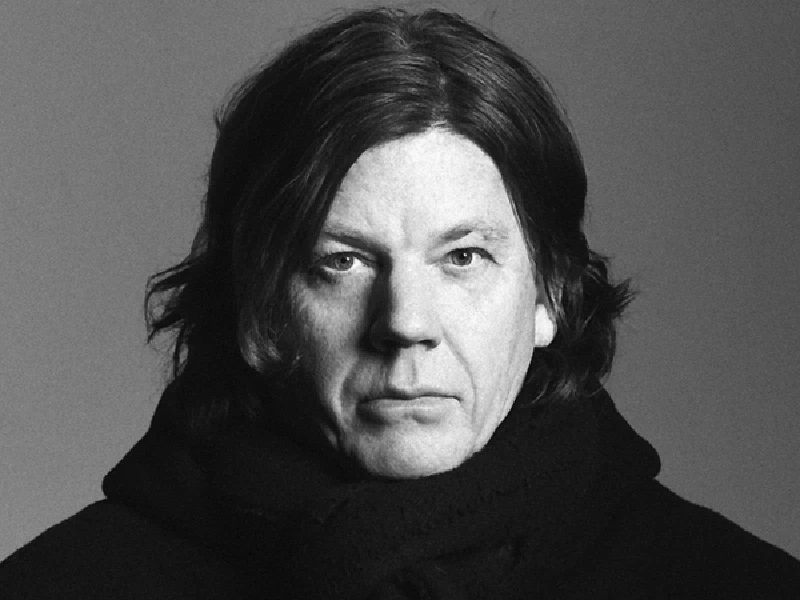
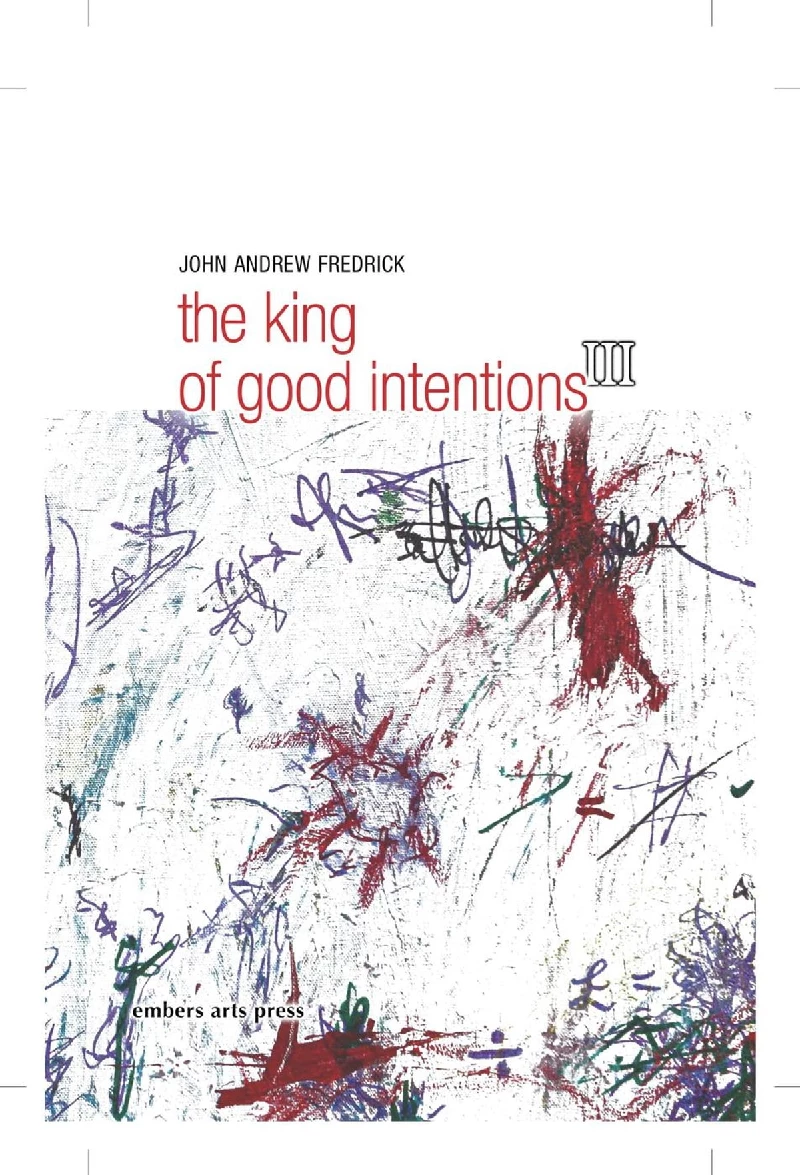
intro
John Andrew Fredrick, the frontman with LA cult band the black watch, talks to John Clarkson about his book trilogy, 'The King of Good Intentions', which is about a 90's indie rock band, and his group's two forthcoming albums, 'The Morning Papers Have Given Us the Vapours' and 'Weird Rooms'.
interviews |
|
Interview (2025) |
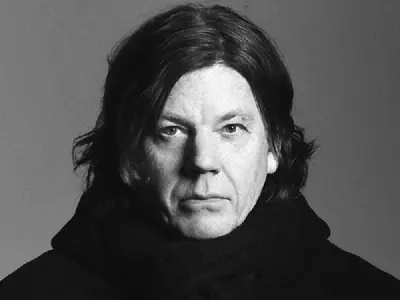
|
| John Andrew Fredrick, the frontman with Los Angeles indie band the black watch, speaks to John Clarkson about his group’s 25th and new double album, ‘For All the World' |
| Interview (2022) |
reviews |
|
The Hypnotizing Sea (2007) |
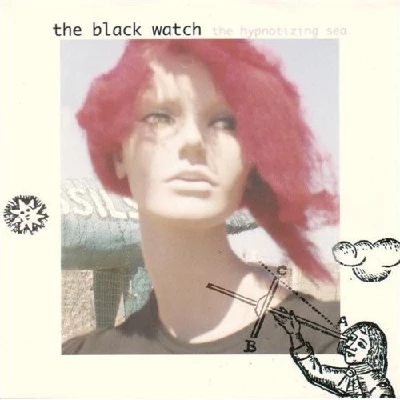
|
| Intelligent and witty indiepop on the latest album from the Black Watch, the moniker for Californian musician John Andrew Frederick |
most viewed articles
current edition
Carl Ewens - David Bowie 1964 to 1982 On Track: Every Album, Every SongArmory Show - Interview with Richard Jobson
Bathers - Photoscapes 1
Colin Blunstone - Thalia Hall, Chicago, 16/7/2025
Visor Fest - Valencia, Spain, 26/9/2025...27/9/2025
Billie Eilish - O2 Arena, London, 10/7/2025
Robert Forster - Interview
Loft - Interview
John McKay - Interview
Editorial - July 2025
previous editions
Heavenly - P.U.N.K. Girl EPManic Street Preachers - (Gig of a Lifetime) Millennium Stadium, Cardiff, December 1999
Oasis - Oasis, Earl's Court, London, 1995
Trudie Myerscough-Harris - Interview
Beautiful South - Ten Songs That Made Me Love...
Pixies - Ten Songs That Made Me Love...
Prolapse - Interview
Simon Heavisides - Destiny Stopped Screaming: The Life and Times of Adrian Borland
Paul Clerehugh - Interview
Doris Brendel - Interview
most viewed reviews
current edition
Amy Macdonald - Is This What You've Been Waiting For?Sick Man of Europe - The Sick Man of Europe
Alice Cooper - The Revenge of Alice Cooper
Phew, Erika Kobayashi,, Dieter Moebius - Radium Girls
Davey Woodward - Mumbo in the Jumbo
Lucy Spraggan - Other Sides of the Moon
Blueboy - 2
Cynthia Erivo - I Forgive You
Philip Jeays - Victoria
Lapsley - I'm a Hurricane, I'm a Woman In Love
related articles |
|
: Interview (2025 |
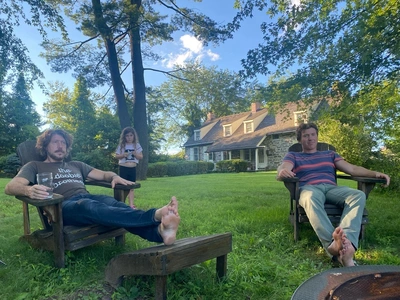
|
| Los Angeles-based brothers and muiti-instrumenralists, Andy and Rob Campanella, about their project Simian Life and its psychedelia, folk and pop-influenced debut album, ‘Hermetic Tonal Briefing’. |
Pennyblackmusic Regular Contributors
Adrian Janes
Amanda J. Window
Andrew Twambley
Anthony Dhanendran
Benjamin Howarth
Cila Warncke
Daniel Cressey
Darren Aston
Dastardly
Dave Goodwin
Denzil Watson
Dominic B. Simpson
Eoghan Lyng
Fiona Hutchings
Harry Sherriff
Helen Tipping
Jamie Rowland
John Clarkson
Julie Cruickshank
Kimberly Bright
Lisa Torem
Maarten Schiethart